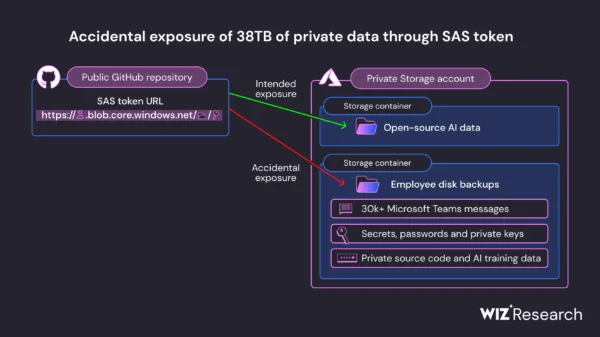A critical vulnerability in Ray, an open source compute framework for AI, could allow unauthorized access to all nodes, cybersecurity firm Bishop Fox warns.
Tracked as CVE-2023-48022, the bug exists because Ray does not properly enforce authentication on at least two of its components, namely the dashboard and client.
A remote attacker can abuse this issue to submit or delete jobs without authentication. Furthermore, the attacker could retrieve sensitive information and execute arbitrary code, Bishop Fox says.
“The vulnerability could be exploited to obtain operating system access to all nodes in the Ray cluster or attempt to retrieve Ray EC2 instance credentials (in a typical AWS cloud install),” the cybersecurity firm notes.
CVE-2023-48022 is rooted in the fact that, in its default configuration, Ray does not enforce authentication, and does not appear to support any type of authorization model, although an optional mutual TLS authentication mode is described in the framework’s documentation.
“In other words, even if a Ray administrator explicitly enabled TLS authentication, they would be unable to grant users different permissions, such as read-only access to the Ray dashboard,” Bishop Fox says.
According to the cybersecurity firm, attackers could exploit CVE-2023-48022 via the job submission API, by submitting arbitrary operating system commands.
Ray’s lack of authentication leads to other security vulnerabilities, including issues that were recently disclosed by Protect AI, which manages Huntr, the bug bounty platform for AI and ML.
Bishop Fox says it independently identified two of these issues and reported them to Ray’s maintainers (Anyscale) around the same time as Protect AI.
“However, the reports were closed based on Anyscale’s position that unauthenticated remote code execution is intentional, and therefore should not be considered a vulnerability,” the cybersecurity firm says.
Furthermore, the company says, the Ray jobs Python SDK can be used for unauthenticated, remote code execution, by crafting a malicious script, using the Ray API for task submission. The Ray client API can also be abused for unauthenticated remote code execution.
Bishop Fox draws attention to other critical-severity vulnerabilities in Ray as well, including a server-side request forgery (SSRF) bug (CVE-2023-48023) and an insecure input validation flaw (CVE-2023-6021) that Protect AI reported to the vendor this summer.
At least some of these issues, the cybersecurity firm notes, remain unpatched, as the vendor either does not recognize them as security defects or does not want to address them.
Update: The CVE IDs for the missing authentication and SSRF vulnerabilities have been corrected after learning that Bishop Fox swapped them in their initial post.
Related: OpenAI Patches Account Takeover Vulnerabilities in ChatGPT
Related: US, UK Cybersecurity Agencies Publish AI Development Guidance















